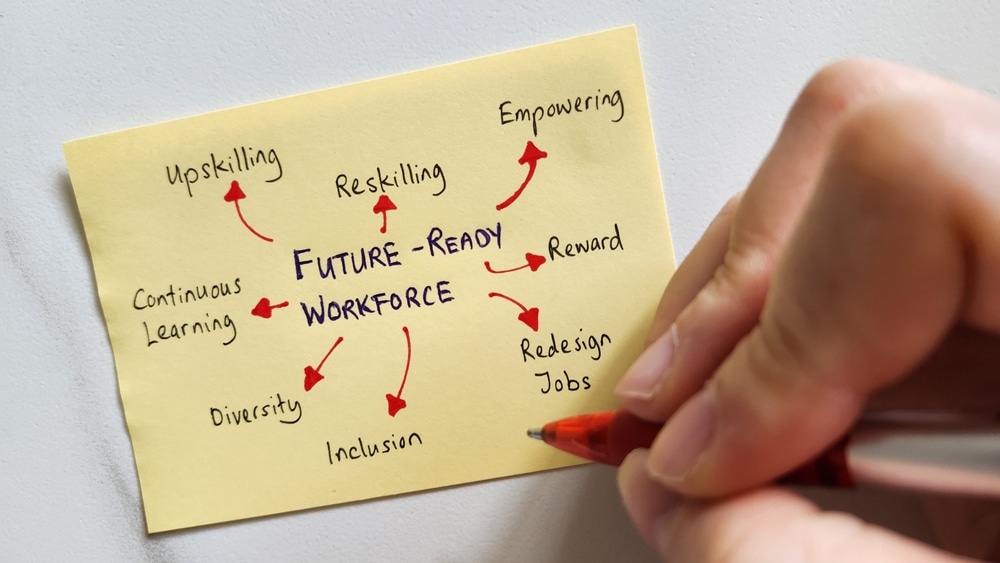According to research carried out by StandOut Cv in 2023 60% of UK employees claim that a poor work-life balance has had a negative effect on their relationships at home, are you one of them?
So, why are we struggling? And why is a healthy work-life balance so important?
See our list of 10 struggles so many face coupled with a solution for each!
Struggle one: Constant connectivity through emails, messaging apps, and virtual meetings blurs the boundaries between work and personal life.
Solution one: Set clear boundaries: establish specific hours and communicate them with your colleagues and superiors. Stick to these boundaries and avoided checking work-related emails or messages outside of those hours.
Struggle Two: Competitive Work Culture, the fear of falling behind colleagues or competitors can push people to prioritize work over other essential aspects of life.
Solution Two: Say no. It’s okay to decline additional work or social commitments if you feel overwhelmed. Saying no can help you protect your time and energy for more important tasks and personal activities.
Struggle Three: Poor time management skills can lead to inefficiencies, causing work tasks to spill over into personal time or vice versa.
Solution Three: Create a to-do list or a task management system to prioritize your work tasks and personal activities. Focus on completing the most important and time-sensitive tasks first.
See our time management blog.
Struggle Four: Failure to streamline processes and move with the times. This may leave you feeling inadequate and below the mark in comparison to your peers or competitors.
Solution Four: Utilise technology wisely: Leverage productivity tools and apps to streamline your work processes and save time. Automation can help you become more efficient and reduce the time spent on repetitive tasks.
Struggle Five: Guilt & self-imposed expectations, do you impost unrealistic expectations of yourself? Are you striving to excel in both professional and personal spheres? When we put pressure on ourselves it can lead to feelings of guilt when unable to meet high expectations.
Solution Five: Practice self-compassion and acknowledge that it’s okay not to be perfect in all aspects of life. Set realistic expectations and recognize that achieving a balance is a process, not an immediate outcome.
Struggle Six: Adequate rest throughout the working day.
Solution Six: Schedule short breaks throughout your workday to relax and recharge. Stepping away from work for a few minutes can improve focus and productivity when you return.
Struggle Seven: Unable to disconnect.
Solution Seven: Set aside time each day to disconnect from electronic devices and social media. Engaging in screen-free activities can promote relaxation and improve sleep quality.
Struggle Eight: Not making time for yourself, your hobbies & interests
Solution Eight: Schedule regular time for activities you enjoy outside of work, such as hobbies, exercise, reading, or spending time with loved ones. Engaging in these activities can help you relax and recharge.
Struggle Nine: Do you have a designated work space?
Solution Nine: Having a designated area for work helps signal your brain to focus during working hours and allows you to mentally detach from work when you leave that space.
Struggle Ten: Unable to identify the problem, e.g., you think you’ve got a great work-life balance. Have you raised that question with your family / loved ones? Blurred lines between work life & personal life (especially for those who are fully remote) may go unnoticed, and responses like “I just need to take this quick call” or “it can’t wait” don’t scream out “I’ve got my work-life balance under control”
Solution Ten: Seek support from others: Communicate your work-life balance goals with your family, friends, and colleagues. Having a support system can encourage you to maintain your boundaries and help you find solutions when challenges arise.
What are the benefits of a healthy work-life balance?
- Improved productivity
- Reduced absenteeism
- A happier, less stressed workforce.
How can your business promote a good work-life balance?
- Lead by example – demonstrate the value of a good work-life balance!
- Offer flexible arrangements – flexible hours, or compressed workweeks, telecommuting etc This allows employees to manage their work responsibilities while accommodating personal commitments.
- Create a positive work environment – share successes, promote well-being, emphasis work-life balance, and discourage overworking (and when required, off that time back). Can you offer a wellness programme? If not, utilise FREE options to encourage staff to de-stress, slow time and take time-out.
Remember, achieving a healthy work-life balance is an ongoing process that requires conscious effort and adjustment. Be kind to yourself, and don’t be afraid to reevaluate and make changes as needed to find the balance that works best for you.










